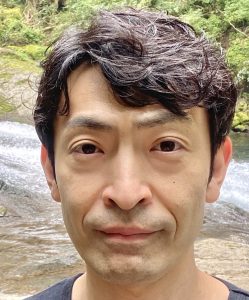 Koki Kato is a GP working in Japan and a BJGP Open Editorial Board Member. He is on Twitter: @kokikatokk
Koki Kato is a GP working in Japan and a BJGP Open Editorial Board Member. He is on Twitter: @kokikatokk
The UK is facing a workforce crisis for general practitioners.1 Accordingly, the measures for recruiting and retaining the workforce are urgent and necessary. However, medical students in the UK do not seem to consider general practice an attractive and rewarding career.2 Unfortunately, in my experience, medical students’ attitudes towards their careers are the same in Japan. The reason might be that GPs are considered not to have unique and extraordinary skills and are believed as masters of none.
We must be able to explain our complex and unique work to medical students concisely and clearly.
We must be able to explain our complex and unique work to medical students concisely and clearly. To this end, inspired by the ‘Levels of palliative care,’3 I would like to propose the ideas of levels of generalist practice. There are three levels: generalist practice approach, general generalist practice and expert generalist practice (EGP).
The generalist practice approach is utilised in settings not specialised in general practice. This includes communication skills regarding person-centred care, for example, identifying patients’ ideas, concerns and expectations. Various health care professionals can provide this approach with appropriate general education and training.
General generalist practice is mostly provided by GPs. The practice is characterised by continuous, comprehensive, coordinated, contextual and accessible care. GPs provide those qualities not only by themselves but also through practice management.
Lastly, EGP comes from the distinct expertise of GPs. This includes person-centred decision making that supports health as a resource for living and interpretive medicine, co-creating the meaning of illness.4 EGP is delivered for undifferentiated problems, complex problems, multimorbidity and, perhaps, persistent somatic symptoms.
The levels of generalist practice can explain the complexity of general practice and the distinct expertise of the GP.
We must show our expertise to medical students to enthuse and therefore recruit them. That is our imminent and urgent imperative. To this end, why not use the levels of generalist practice? The levels of generalist practice can explain the complexity of general practice and the distinct expertise of the GP.
References
1. Jefferson L, Holmes M. GP workforce crisis: what can we do now?. Br J Gen Pract. 2022;72(718):206-207. Published 2022 Apr 28. doi:10.3399/bjgp22X719225
2. Barber S, Brettell R, Perera-Salazar R, Greenhalgh T, Harrington R. UK medical students’ attitudes towards their future careers and general practice: a cross-sectional survey and qualitative analysis of an Oxford cohort. BMC Med Educ. 2018;18(1):160. Published 2018 Jul 4. doi:10.1186/s12909-018-1197-z
3. Radbruch, L, Payne, S. White paper on standards and norms for hospice and palliative care in Europe: part 1. Eur J Palliat Care 2009; 16(6): 278–289.
4. Reeve J, Dowrick CF, Freeman GK, et al. Examining the practice of generalist expertise: a qualitative study identifying constraints and solutions. JRSM Short Rep. 2013;4(12):2042533313510155. Published 2013 Nov 21. doi:10.1177/2042533313510155
Featured image by phil sheldon ABIPP on Unsplash







Three levels of generalist practice but only one comprehensivist
The “general practice approach” should be a fundamental competency for all physicians. However, many consultant physicians in narrowly focused specialties seem challenged to maintain those caring competencies. “General generalist practice” can be provided by many professional clinicians with appropriate additional training. In the US, those can include general internal medicine physicians, general pediatricians, geriatricians, primary care nurse practitioners, and primary care physician assistants. “Expert generalist practice” requires the advanced knowledge, skills, and attitudes attained through specialty training in general practice or family medicine.
Unfortunately, (at least in the US and I suspect elsewhere) the terms generalist and primary care are often co-opted by other clinicians, advertisers, corporate healthcare interests, and the popular press. Interpreting these three levels of generalist practice may require understanding medical practice, professionalism, and human needs beyond these limited visions.
Dr. Kato’s three levels of generalist practice can be helpful for training clinicians, defining qualifications, documenting competencies, and planning healthcare services. However, I recommend adding a bold label for those with the training, expertise, and commitment necessary to care for the whole patient.
Across these levels and clinician groups, only the specialty-trained General Practitioner or Family Physician undertakes patient care as a COMPREHENSIVIST.
Dear Dr Phillips,
Thank you for your thoughtful comment. Your examples of the levels of generalist practice and the analysis of the term ‘generalist’ help us better understand this topic.
As you pointed out, comprehensiveness or whole-person care is an essential component of family medicine and generalist practice. Therefore, the second level of generalist practice, general generalist practice, includes ‘comprehensive care’. I admit comprehensiveness is an essential component of family medicine and generalist practice. However, there is also a concern that the term COMPREHENSIVIST gives the impression of someone who treats a wide range of ‘diseases’. This is because, as for the comprehensiveness of disease coverage, an emergency medicine doctor is another type of comprehensivist.
I believe person-centredness is a cardinal tenet of family medicine and generalist practice. We may need a new language.
Thank you for your insightful feedback. I have deepened the reflection regarding this theme.